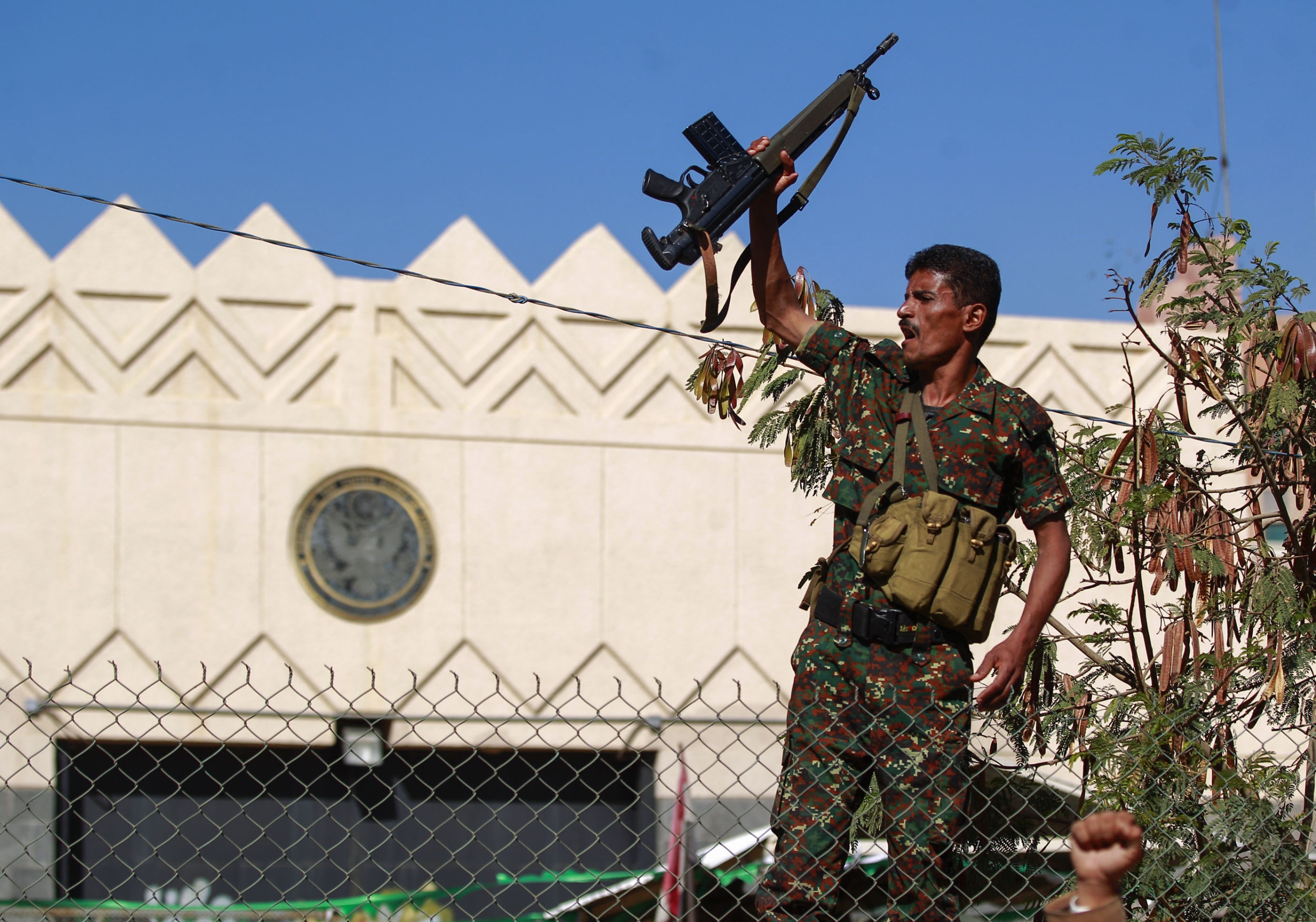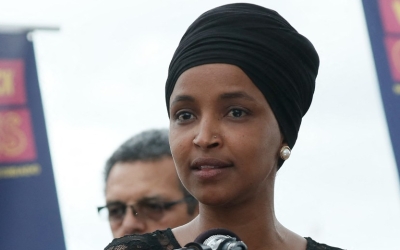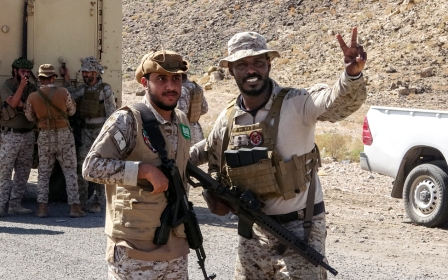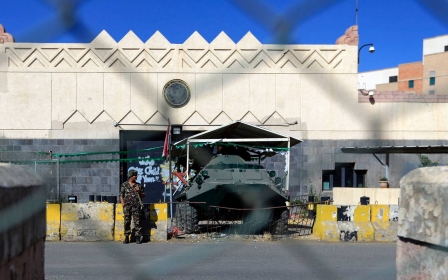US lawmakers warn of 'consequences' after Yemen's Houthis detain embassy staff

US lawmakers warned Yemen's Houthi rebels of "consequences" on Friday after the Iran-aligned group stormed the US embassy in Sanaa and detained locally employed staff.
"Breaching the sovereign territory of a foreign embassy and threatening and detaining its staff clearly demonstrate the Houthis have no interest in peace," Senators Robert Menendez and Jim Risch, who lead the Senate Foreign Relations Committee, and Congressmen Gregory Meeks and Michael McCaul, who head the House Foreign Affairs Committee, said in a statement seen by Middle East Eye.
The State Department said on Thursday that the Houthis had breached the site of the former US embassy and taken Yemeni security employees captive.
The US closed its Yemen embassy in early 2015 and moved its operations to Saudi Arabia, several months after conflict erupted between the Houthis and the internationally recognised government.
However, some local staff employed by the US have continued to work in the country or serve as security guards at the compound.
New MEE newsletter: Jerusalem Dispatch
Sign up to get the latest insights and analysis on Israel-Palestine, alongside Turkey Unpacked and other MEE newsletters
Bloomberg reported that over the span of the last three weeks, Houthi forces had arrested around 25 Yemenis working for the US as well as employees of the embassy and USAID.
A State Department spokesperson said most of the Yemenis had been released but the rebels continued to hold embassy workers.
"The Houthis should immediately release all US and UN staff, and suspend their campaign of harassment. Failing to do so is unacceptable and will have consequences," the lawmakers said.
Fighting between Yemen's warring parties in the gas-rich Marib region has intensified in recent months, at a time when the United Nations and the US are pushing for a peace deal.
While the Biden administration had originally sought to end US support for the Saudi-led war effort, more recently it has shown signs of maintaining Washington's long-standing commitment to the kingdom's defence.
Last week the White House approved a $650m sale of air-to-air missiles to Riyadh.
The war in Yemen erupted in September 2014, when the Houthis, who claim to represent the Yemeni people, seized the capital, Sanaa, sparking a civil war that forced President Abd Rabbuh Mansour Hadi to seek refuge in Aden and then Saudi Arabia.
The kingdom and its regional allies, chiefly the UAE, intervened in March 2015 and launched a wide-ranging aerial bombing campaign, carrying out thousands of air strikes in an effort to roll back the rebels.
The coalition also introduced an air and naval blockade that it says prevents the Houthis from smuggling weapons into the country.
The UN and several human rights groups have said the blockade has heavily restricted the flow of aid and goods from coming into the country, putting millions at risk of famine.
The country is frequently described as the world's worst humanitarian crisis, with more than 230,000 people killed, an estimated four million displaced, and around 80 percent of Yemenis dependent on aid for survival.
Middle East Eye delivers independent and unrivalled coverage and analysis of the Middle East, North Africa and beyond. To learn more about republishing this content and the associated fees, please fill out this form. More about MEE can be found here.





